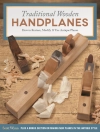In ‘The American Frugal Housewife, ‘ Lydia Maria Child offers a comprehensive guide to thrifty domestic management, intertwining practical advice with moral philosophy. This seminal text reflects the prevailing economic struggles of early 19th-century America, utilizing a clear and accessible literary style to appeal to a broad audience. Child’s work delves into various topics such as budgeting, cooking, gardening, and home remedies, all underscored by a commitment to frugality as a virtue. The book stands as a vital contribution to the genre of household manuals and is notable for its progressive stances on women’s roles in the domestic sphere and the emerging consumer culture of the time. Lydia Maria Child, an ardent advocate for social reform, was deeply influenced by her experiences in a changing America. Her commitment to issues like abolition and women’Äôs rights resonates throughout her writing. ‘The American Frugal Housewife’ is not merely a practical manual; it reflects Child’s belief in the empowerment of women through knowledgeable and prudent household management. Her insights stem from her own life experiences and a response to the economic realities faced by many families. This book is highly recommended for readers interested in American social history, women’s studies, and domestic literature. Child’s blend of practicality and progressive thought provides not only valuable household tips but also a rich commentary on the evolving role of women in society. Its timeless wisdom makes it a must-read for those seeking inspiration in frugality, resourcefulness, and social consciousness.
Lydia Maria Child
The American Frugal Housewife [EPUB ebook]
Thrifty Tips and Household Wisdom: A Guide to Frugal Living in 19th Century America
The American Frugal Housewife [EPUB ebook]
Thrifty Tips and Household Wisdom: A Guide to Frugal Living in 19th Century America
Cumpărați această carte electronică și primiți încă 1 GRATUIT!
Limba Engleză ● Format EPUB ● Pagini 220 ● ISBN 4057664138248 ● Mărime fișier 0.6 MB ● Editura Good Press ● Oraș Prague ● Țară CZ ● Publicat 2019 ● Descărcabil 24 luni ● Valută EUR ● ID 7509022 ● Protecție împotriva copiilor DRM social












